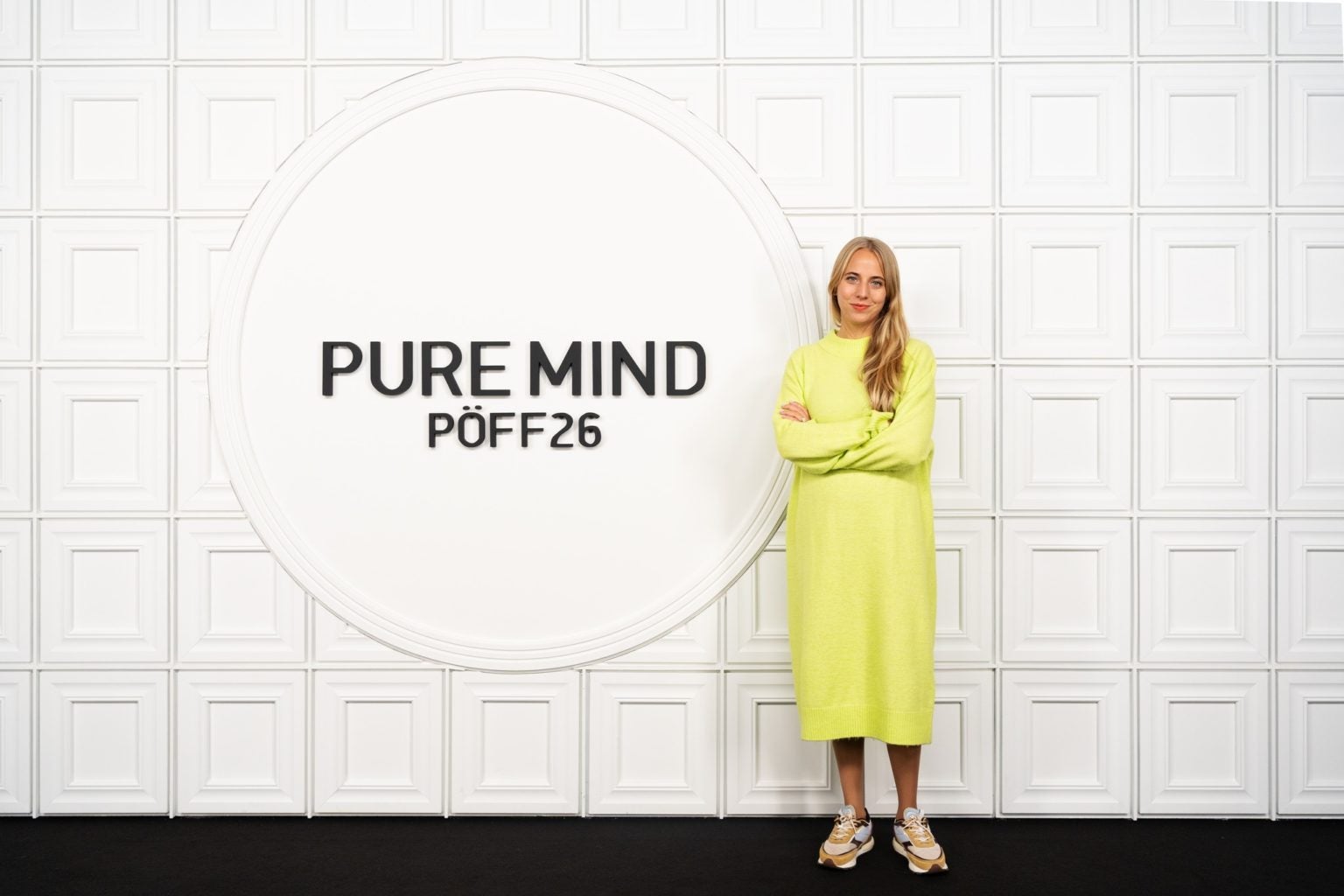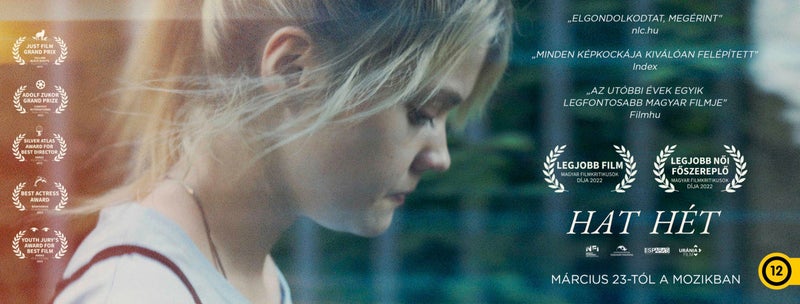‘Men are not to be found in these stories’ – the director of Six Weeks was the guest of the film club

Six weeks – this is the critical period after the birth of a baby, when the mother who wishes to offer her child for adoption can still change her mind and decide to raise the baby herself. This emotional roller coaster ride is the subject of Noémi Veronika Szakonyi, Corvinus alumna’s film, which was presented to the members of the film club and discussed with the director.
I must admit that I had already seen the film, but I was very happy to see it again: for the second time, you have the opportunity to observe small but important details. For me, Noémi Veronika Szakonyi’s film is the best film of the year (so far). The first-time director processes a general human theme in a way that faithfully reflects Hungarian reality, anxieties, secrets, taboos and hopeless life situations.
After the screening, Júlia Sipos, the University’s cultural fellow, talked to the director. In reply to Júlia Sipos’s question about what the university gave to the director – since she obtained her first degree at Corvinus -, perhaps a kind of social sensitivity or a producer’s vein, the director said frankly that she applied for admission to Corvinus under parental pressure, but then realised it was a good decision. ‘I’ve learned a lot here, I went to Germany on an Erasmus scholarship, and then to China, thanks to the university’s connections. I’m sure my work as a producer has something to do with the fact that I graduated from this university,’ she said. Six Weeks has already collected seven awards (one of which is the Grand Prix at the Miskolc CineFest festival, which it won in a strong international competition). As Szakonyi told us, the film is now on its way to Shanghai. The director spoke about the conditions of making the film, too: ‘Máté Vincze, who was my classmate in Tamás Almási’s documentary film class at the University of Theatre and Film Arts, is my creative partner. Máté loves this topic, so we started interviewing mothers who want to offer their children for adoption in open adoption procedures. The deeper we dug into the subject, the more we felt that we were not going to make a documentary on the subject, since the presence of the camera inevitably influences the characters, so we would make a feature film instead, based on interviews and reality. In fact, the story of the main character, Zsófi, was inspired by one of our interviewees, and it is a great luck that we found Katu, i.e. Katalin Román, for this role,’ said the director.
She also spoke about the fantastic role that NGOs play in the field of adoption, helping both birth mothers and prospective adopters to meet each other and make the adoption successful. ‘Of course, you have to be able to make use of the help, 20 percent of women offering their children for adoption are single mothers living in extreme poverty, but we have seen that there are stories like this in posher districts of Budapest such as Rózsadomb or Újlipótváros, too. In the film we wanted to talk about taboos, too, because in Hungary, it is not only adoption that is often a taboo, but abortion, miscarriage or raising a child alone also. Women often hide away with these problems, education does not address them, and these mothers are not socialised in a way that they would be able to accept help,’ Szakonyi said. She added that in the film, they wanted to show a borderline situation where both options are realistic: the 17-year-old girl giving birth may keep the baby, or may change her mind in the last moment. By the way, she and Máté – who is not only her co-creator but also her husband – love stories where all parties have their own truth. Many adoptees have also watched the film and have given positive feedback.
After the moderated discussion, the audience was also invited to ask questions. One of them said that she was a family sociologist and she liked the fact that the film was mainly about the mother offering her child for adoption, an issue on which there is not much research to her knowledge. In response to this question, the director said that there is still a lot of shame and stigmatisation in Hungary in this area, while the number of adoptions is extremely high. In our country, unfortunately, the majority of people do not want to adopt Roma children or children with any kind of disability, such children are adopted mainly in the USA or Sweden, where they are welcome. She said that their next film would be about an American adoptive family who adopted three Roma children from Miskolc. They plan to follow the family for 12 years, which is how long they want to shoot the film.
Another member of the audience pointed out that although Zsófi’s intention to offer her child for adoption is perfectly rational – how could a 17-year-old girl in an unstable family raise her child while wanting to become a professional athlete, and she has a good chance of doing so as her only chance to stand out – her child will have to face the fact that her mother “gave her away”. In response, the director said that it is indeed a trauma that the mother has given the child up. She added: Márta Mészáros’s two films, Nine Months and Adoption, inspired her a lot, and she added: “Unfortunately, social mobility has not changed much since these two films”. When asked why there are only women in the film, and where the men are, the director said, ‘it’s not a coincidence, because there are no men in these stories. We wanted to be authentic, and five years of research was invested into the film’.
At the reception after the discussion, our website asked the director how she managed to find Katalin Román, for whom this is the first leading role, and her acting is outstanding. “We found Katu, aka Katalin Román, at one of the last casting calls. By the way, Katu has already applied for admission to the University of Theatre and Film Arts three times, but she has not been admitted. At the casting we asked her if she could play ping pong, as Zsófi is preparing for a major championship in this sport. Katu said, of course, everyone can play ping-pong. At our request, she tried it then, but she could barely return the balls served by the production manager. Katu, after she got the role, practiced five hours a day, even the Olympic team helped her, for which I am very grateful to them. The film was shot in Budapest within 21 days, but we deliberately chose a location that could be anywhere in the country.
Katalin Török
